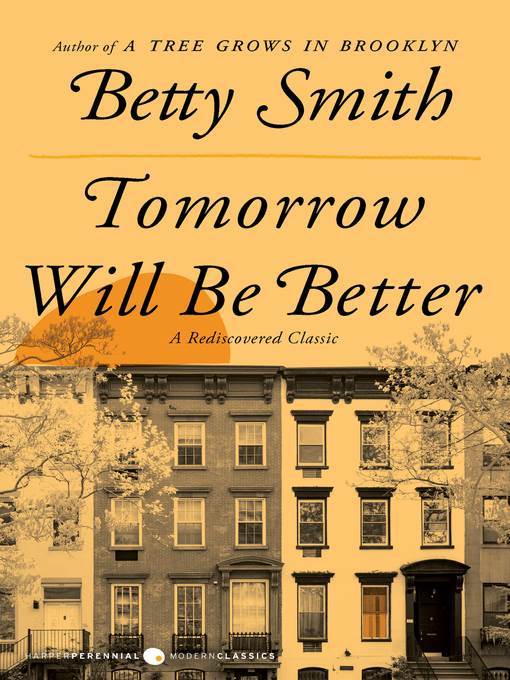
Tomorrow Will Be Better
A Novel
کتاب های مرتبط
- اطلاعات
- نقد و بررسی
- دیدگاه کاربران
نقد و بررسی

April 15, 2020
Smith is best known for her 1943 classic, A Tree Grows in Brooklyn. This 1948 novel, now back in print, follows young Margy Shannon in 1920s Brooklyn as she dreams of a brighter future than the life of poverty she has known. The product of an unhappy marriage between a bitter, harsh mother and a passive, emotionally suppressed father, Margy is eager to venture out into the world to get her first job and, hopefully, a husband and home of her own. She soon marries Frankie Malone, from a similarly poor Brooklyn family, but Margy's dream of a house of her own full of children continues to prove elusive. Smith's keen eye for character is on full display here in her psychologically astute portrayals of not just Margy and Frankie but various friends and family members in their orbit. Readers searching for an optimistic tale of the American Dream should look elsewhere, but those seeking rich characterization and vivid period detail will savor this story of a young woman's dreams, disappointments, and relentless hope for the future.(Reprinted with permission of Booklist, copyright 2020, American Library Association.)

September 15, 2020
Smith's second novel, originally published in 1948, returns to the author's home territory, the tenements of pre-gentrified Brooklyn, with another young female protagonist trying to improve her life. Margy Shannon's ambitions are more modest than those found in Smith's earlier, openly autobiographical classic, A Tree Grows in Brooklyn. At 17, Margy has limited expectations beyond the life she's known. Having left high school, she is relatively happy with her job as letter reader at a mail-order business. She's made friends there and has a crush on her boss, kindly Mr. Prentiss, whose genteel mother's manipulative domination stops him from acting on his attraction to Margy--in today's workplace, to act would be considered harassment, but the novel makes Mr. Prentiss' mother the villain. Margy lives at home with her own dominant mother, Flo, who is too emotionally stunted to show her love for Margy. Flo's marriage with Margy's "shoved around" father is fueled by mutual unhappiness; yet Margy dreams of marriage and children. She is thrilled when halfheartedly asked on a date by Frankie, a messenger for a Wall Street brokerage company. The product of yet another domineering mother, Frankie wants to escape his rough family and is looking for a "sensible," unflashy girl. He pushes Margy to marry but proves uninterested in physical intimacy, at least with her, and has no desire for children. Margy's Protestant friend Reenie follows a livelier, if riskier, path, carrying on an open affair with her Catholic boyfriend. When she gets pregnant, he marries her despite parental concerns. Meanwhile, pregnancy leads to a crisis in Margy's marriage, and her future takes an unexpected turn. Reading Smith today means acknowledging the shadow of homophobia hanging over Frankie and the demonization of "dominant" mothers while appreciating the multidimensional, nuanced portrayals of the working-class characters and a version of feminism that applauds both work and motherhood as valid choices. Gritty yet generous slice of early-20th-century American life.
COPYRIGHT(2020) Kirkus Reviews, ALL RIGHTS RESERVED.

























دیدگاه کاربران